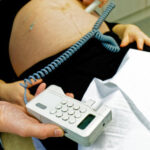How long should you wait to take a pregnancy test? This is a common question many women ask themselves when they suspect they may be pregnant. The timing of a pregnancy test is crucial, as it can greatly affect the accuracy of the results. The anticipation and anxiety leading up to taking a pregnancy test can be overwhelming for many women, making it important to understand the significance of timing and how it plays a role in the testing process.
The timing of a pregnancy test is essential in determining its accuracy. Understanding when and how to take a pregnancy test can help alleviate some of the stress and uncertainty associated with the process. In this article, we will explore the importance of timing when taking a pregnancy test, as well as provide guidance on early signs of pregnancy, factors to consider before taking a test, and tips for accurate testing at home.
For many women, waiting to take a pregnancy test can feel like an eternity. However, understanding the ideal timeframe for taking a test after a missed period and learning about the various factors that can affect its accuracy can help provide clarity during what can be an emotionally charged time.
Whether you are eagerly hoping for a positive result or bracing yourself for the possibility of a negative one, knowing how long to wait before taking a pregnancy test is crucial in ensuring accurate results.
What Is a Pregnancy Test?
A pregnancy test is one of the first steps in confirming whether or not you are pregnant. It is a simple and relatively inexpensive way to find out if you are expecting a baby. There are two main types of pregnancy tests: urine tests and blood tests.
Types of Pregnancy Tests
Urine tests, which are commonly used at home, detect the presence of the hormone human chorionic gonadotropin (hCG) in your urine. This hormone is produced by the placenta shortly after a fertilized egg attaches to the uterine lining. On the other hand, blood tests performed at a healthcare provider’s office can detect hCG earlier than urine tests and are also able to measure the exact amount of hCG in your blood.
How Pregnancy Tests Work
The science behind how pregnancy tests work is quite fascinating. Both urine and blood pregnancy tests work by detecting the presence of hCG in your body. If hCG is detected, it indicates that you are likely pregnant. The levels of hCG increase rapidly in early pregnancy, making it easier for the test to accurately confirm whether you are expecting. Understanding this process can help women feel more confident when taking a pregnancy test and interpreting its results accurately.
Early Signs of Pregnancy
Common Early Symptoms
Pregnancy can bring about a variety of early symptoms that may signal the onset of pregnancy. Some common signs include breast tenderness, fatigue, nausea, and a heightened sense of smell. Women may also experience frequent urination, mood swings, and food aversions or cravings. While these symptoms can vary from woman to woman, paying attention to how your body feels can offer valuable insight into potential pregnancy.
Importance of Paying Attention to Your Body
Understanding and being attuned to your body is crucial when it comes to detecting early signs of pregnancy. For many women, the earliest indicators can often be mistaken for premenstrual symptoms. However, recognizing subtle changes and listening to what your body is telling you can prompt timely action and preparation if indeed pregnant.
The Key Role of Timing
The timing of taking a pregnancy test is directly related to the early signs experienced. Being mindful of when these symptoms start emerging in relation to your menstrual cycle can guide you on when it may be appropriate to take a test.
This awareness can help in ensuring the accuracy of the results and managing any emotional anticipation leading up to the test. It’s essential to consider how long should you wait to take a pregnancy test after experiencing these early signs before buying a home test or scheduling an appointment with your healthcare provider for a blood test.
How Long Should You Wait to Take a Pregnancy Test?
Taking a pregnancy test at the right time is crucial to ensure accurate results. Many women experience anxious anticipation leading up to the test, and knowing when to take it can alleviate some of that stress. So, how long should you wait before taking a pregnancy test?
The ideal timeframe for taking a pregnancy test is after you have missed a period. This typically means waiting about one week after your missed period to take the test. However, some pregnancy tests claim to be able to detect pregnancy earlier than this. It’s important to note that taking a test too early can result in a false negative, so waiting until after a missed period is the most reliable option.
It’s also important to consider the accuracy of the test at different points in your menstrual cycle. For example, testing too soon after ovulation can result in inaccurate results, as hCG levels (the hormone detected by pregnancy tests) need time to rise high enough for detection. Therefore, it’s best to wait until after you have missed your period for more dependable results.
Factors such as certain medications or fertility treatments can also affect the accuracy of a pregnancy test. If these factors apply to you, it may be necessary to consult with a healthcare provider about the best timing for taking a test. Ultimately, understanding when and how long to wait before taking a pregnancy test can lead to more accurate results and less anxiety during the waiting period.
Factors to Consider Before Taking a Pregnancy Test
When considering when to take a pregnancy test, it’s important to recognize that there are several factors that can affect the accuracy of the results. Here are some important things to consider before taking a pregnancy test:
- Medications: Certain medications, such as fertility treatments or hormone therapies, can interfere with the results of a pregnancy test. It’s important to consult with your healthcare provider if you are taking any medications that could potentially impact the accuracy of the test.
- Menstrual Cycle: The timing of your menstrual cycle can also play a role in the accuracy of a pregnancy test. While some tests claim to provide results even before a missed period, it’s generally recommended to wait until after you have missed your period for the most accurate results.
- Quality of the Test: Not all pregnancy tests are created equal. Some may be more sensitive and able to detect lower levels of hCG (the pregnancy hormone) in your urine, while others may require a higher concentration of hCG to produce a positive result. Be sure to carefully read and follow the instructions on the test you choose to ensure the most accurate results.
In addition to these factors, it’s essential to pay attention to your body and any potential symptoms of early pregnancy before taking a test. Understanding these considerations can help you make an informed decision about when is the best time for you personally to take a pregnancy test.
Tips for Taking a Pregnancy Test
Taking a pregnancy test can be a nerve-wracking experience, especially for those who have been trying to conceive. It’s important to understand how the timing of the test can impact its accuracy and effectiveness. Knowing when and how to take a pregnancy test can make the process less stressful and more reliable.
When it comes to home pregnancy tests, it’s ideal to wait until after you have missed your period before taking the test. This is because the hormone hCG, which is produced during pregnancy, may not be present in high enough levels to be detected by the test before this time.
Typically, waiting at least one week after your missed period will provide the most accurate results. However, some pregnancy tests claim to detect hCG even before a missed period, so it’s advisable to read instructions carefully and consider using an early detection test if you are eager to find out sooner.
When taking a home pregnancy test, it’s important to follow the instructions provided with the test kit carefully. Using first-morning urine is often recommended as it tends to have higher levels of hCG, increasing the likelihood of an accurate result. Additionally, reading and interpreting the results within the specified time frame is crucial. Waiting too long or checking the results outside of the designated window can lead to false readings.
If your first pregnancy test yields a negative result but you still suspect that you might be pregnant based on your symptoms or intuition, consider taking another test in a few days or consulting with a healthcare provider for further guidance. Understanding how long should you wait to take a pregnancy test and following best practices for testing can help alleviate some of the stress and uncertainty that comes with the early stages of pregnancy detection.
What if the Test Is Negative?
Dealing with a negative pregnancy test can be an emotional experience for many women. The anticipation leading up to taking the test can be overwhelming, and a negative result can bring about feelings of disappointment, frustration, and even sadness. It is important to remember that a negative pregnancy test does not necessarily mean that you will never become pregnant, but rather that it may not have been the right time or that there could be underlying factors affecting conception.
One of the most important things to keep in mind if your pregnancy test comes back negative is that it’s okay to feel upset. It is completely normal to experience a range of emotions in response to the results, especially if you have been actively trying to conceive. Many women may feel a sense of loss or failure, and it’s essential to allow yourself to process these emotions in a healthy way.
If you receive a negative result on your pregnancy test, it’s important to take care of your mental and emotional well-being. Reach out to loved ones for support, talk about your feelings, and engage in activities that bring you comfort.
Remember that every woman’s journey towards conception is different and that your time will come when the circumstances are right. If you are feeling overwhelmed by the results of your pregnancy test, consider speaking with a healthcare provider or seeking out professional counseling for additional support.
Remember that receiving a negative result on your pregnancy test does not mean that you should give up hope. If you are still experiencing symptoms of pregnancy or have concerns about your fertility, consider consulting with your healthcare provider for further guidance on next steps. The journey towards conception can be challenging at times, but having information and support at hand can help navigate this uncertain period with confidence and resilience.
Seek Professional Help
As much as taking a pregnancy test at home can provide quick answers, it is essential to remember that the results should be confirmed by a healthcare professional. Many women may wonder how long they should wait to take a pregnancy test, and the answer will depend on several factors.
While home pregnancy tests (HPTs) claim to be about 99% accurate on the first day of your missed period, it’s always best to double-check with your doctor for confirmation.
Experts generally recommend waiting for at least one week after a missed period before taking a pregnancy test. This is because it takes time for the body to produce enough hCG (human chorionic gonadotropin) hormone, which is what HPTs detect. Taking a test too early can result in a false negative, as there might not be enough hCG in your urine to register on the test yet.
However, if you suspect you may be pregnant due to symptoms like morning sickness or breast tenderness, you can consider taking an early detection pregnancy test which can detect smaller amounts of hCG than their standard counterparts. These tests are more sensitive but should still be followed up with a visit to the doctor for confirmation.
| Relevant Data | Data |
|---|---|
| Recommended wait time for taking a pregnancy test | 1 week after missed period |
| Sensitivity of early detection pregnancy tests | Detect smaller amounts of hCG than standard tests |
Conclusion
In conclusion, the timing of a pregnancy test is crucial to its accuracy and can have a significant impact on a woman’s emotional well-being. Understanding the ideal timeframe for taking a pregnancy test after a missed period is essential in order to achieve accurate results. It’s important to remember that different factors such as medications or fertility treatments can affect the accuracy of the test, so it’s crucial to consider these before taking a pregnancy test.
Paying attention to early signs of pregnancy and knowing when and how to take a pregnancy test can empower women to make informed decisions about their reproductive health. By providing guidance on factors that can affect the accuracy of a pregnancy test and tips for taking the test at home, women can feel more confident in navigating this uncertain time.
Empowerment through knowledge is key when it comes to reproductive health, and understanding how long should you wait to take a pregnancy test is just one aspect of this. By seeking professional help when needed and being aware of early signs of pregnancy, women can take control of their reproductive health and make informed choices for themselves.
Ultimately, knowledge is power, and by being well-informed about all aspects of pregnancy testing, women can navigate this important time with more confidence and understanding.
Frequently Asked Questions
How Soon Will Pregnancy Test Show Positive?
A pregnancy test can show a positive result as early as 8-10 days after ovulation. However, for the most accurate result, it’s best to wait until the first day of a missed period.
Can I Take a Pregnancy Test After 5 Days?
It is possible to take a pregnancy test 5 days after ovulation, but keep in mind that it may be too early to detect the hormone levels associated with pregnancy at this point. Waiting until closer to the expected period date will yield more accurate results.
What Are the Symptoms of 1 Week Pregnancy?
During the first week of pregnancy, some women may experience symptoms such as mild cramping, breast tenderness, fatigue, and a heightened sense of smell. However, at this stage, many women may not exhibit any noticeable symptoms yet.

Welcome to my fertility blog. This is a space where I will be sharing my experiences as I navigate through the world of fertility treatments, as well as provide information and resources about fertility and pregnancy.





